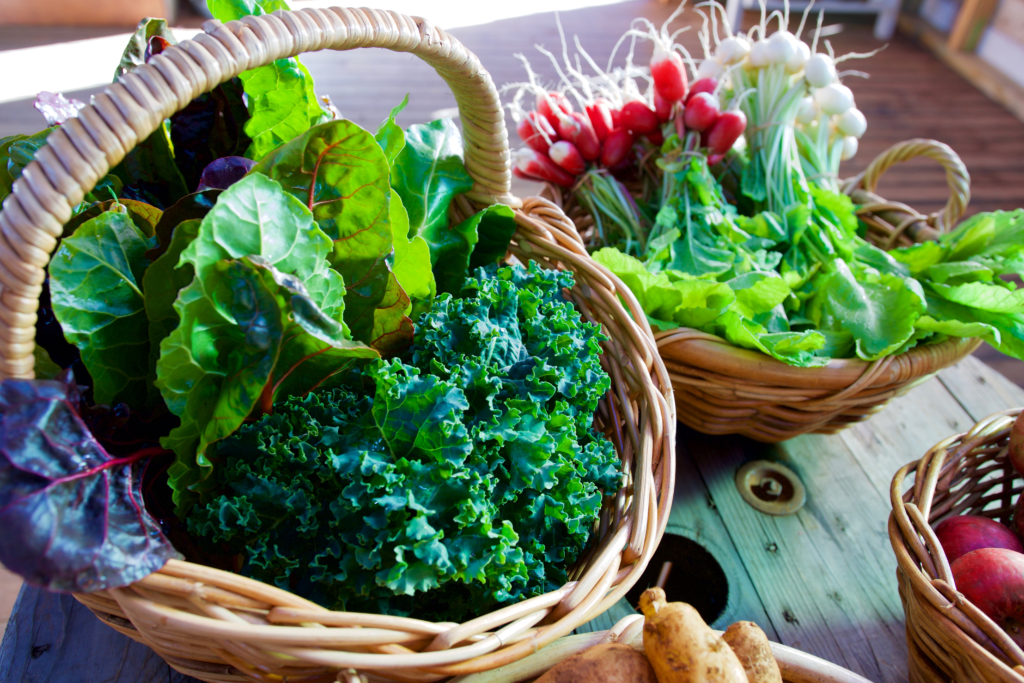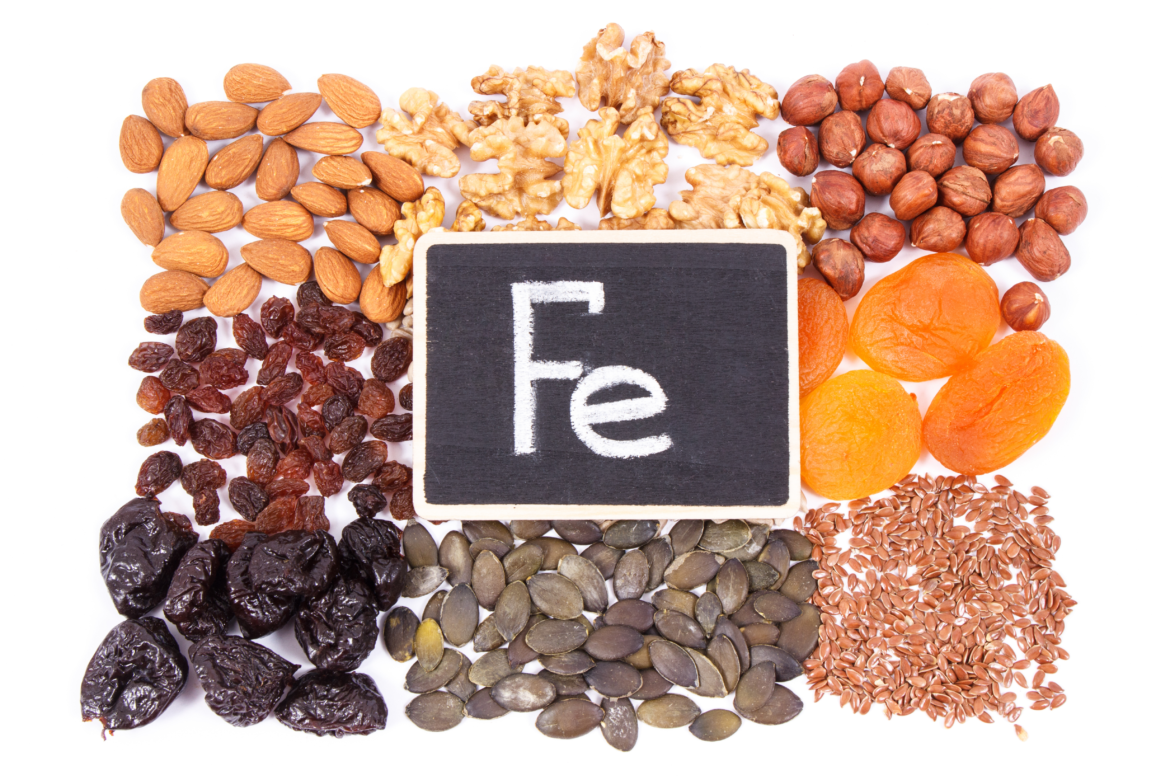In the world of nutrition, iron stands as a crucial mineral that plays a pivotal role in sustaining our overall well-being. From aiding in the transportation of oxygen within our blood to supporting cellular energy production, iron’s contributions are essential to our vitality. For vegans, whose dietary choices prioritize ethical and plant-based consumption, ensuring sufficient iron intake and absorption becomes paramount. In this comprehensive exploration, we delve into the significance of iron for vegans, uncover plant-based iron sources, and unveil effective strategies to enhance iron absorption, ultimately paving the way to optimal health.
The Vital Role of Iron
Iron is an elemental nutrient that fuels the production of hemoglobin, a protein in red blood cells that binds to oxygen and carries it throughout the body. This process is fundamental to cellular respiration, where oxygen is utilized to produce energy. Additionally, iron supports immune function, cognitive development, and the maintenance of healthy skin, hair, and nails. A deficiency in iron can lead to anemia, characterized by fatigue, weakness, and decreased cognitive function.
Iron for Vegans: Nurturing Vitality Through Plant-Powered Nutrition
Iron, an elemental mineral that forms the foundation of robust health, assumes a particularly important role in the dietary choices of vegans. For those who prioritize plant-powered nutrition and ethical dietary practices, understanding iron’s significance becomes pivotal. Iron serves as a foundational component for the production of hemoglobin, a protein in red blood cells that facilitates oxygen transportation throughout the body. This process, known as oxygenation, fuels cellular energy production and is essential for overall vitality.
For vegans, who abstain from animal-derived foods, iron’s role gains even greater prominence. The challenge lies in obtaining sufficient iron from plant-based sources, which predominantly offer non-heme iron—a form of iron that is not as readily absorbed as heme iron found in animal products. However, with thoughtful planning and strategic dietary choices, vegans can effectively meet their iron needs and nurture their well-being.
Plant-based sources of iron include legumes, beans, lentils, leafy greens, nuts, seeds, and fortified whole grains. These foods not only contribute to iron intake but also offer an array of additional nutrients that synergize with iron’s benefits. However, optimizing iron absorption from these sources requires mindful pairings and considerations.
Understanding the role of iron in supporting oxygen transport, energy production, and overall health provides a compass for vegans to navigate their dietary choices. By embracing iron-rich plant foods, being aware of absorption-enhancing strategies, and considering the potential need for supplements under the guidance of healthcare professionals, vegans can ensure that iron’s vital role is upheld within their compassionate and health-conscious lifestyle.
The Significance of Iron for Vegans: Nourishing Vitality and Well-Being
Iron, an essential mineral in the symphony of nutrition, holds profound significance for vegans on their journey toward optimal health. As stewards of a plant-based lifestyle, understanding why iron is so beneficial becomes pivotal in upholding vitality and well-being. From sustaining energy levels to supporting cognitive function, iron’s multifaceted contributions align harmoniously with the values and choices of the vegan community.
Vital Oxygen Transport
At the heart of iron’s importance lies its role in oxygen transport. Hemoglobin, a protein residing within red blood cells, depends on iron to bind to oxygen and carry it throughout the body. This process fuels cellular respiration, enabling the release of energy necessary for various bodily functions. For vegans, who prioritize plant-based nourishment, sufficient iron intake ensures that their cells receive the oxygen required to thrive.
Guardians of Cognitive Health
Iron’s influence extends to the realm of cognitive function. Adequate iron levels are essential for optimal brain health, as iron contributes to the production of neurotransmitters that facilitate communication between nerve cells. Maintaining cognitive clarity and supporting memory retention are key aspects of well-being for vegans, and iron plays a role in fortifying these cognitive domains.
Fueling Energy and Vitality
Iron is an elemental force that contributes to the body’s energy production. By participating in the electron transport chain, iron aids in generating adenosine triphosphate (ATP), the molecule that stores and delivers energy within cells. For vegans embracing an active lifestyle, iron ensures that their energy reserves remain replenished, enabling them to engage in physical pursuits and daily activities with vigor.
Stalwarts of Immune Resilience
The vegan ethos of conscious living is closely intertwined with a commitment to health and well-being. Iron plays a crucial role in bolstering the immune system, providing the foundation for a resilient defense against infections and illnesses. Adequate iron levels contribute to the production of immune cells that patrol the body, safeguarding it against external threats.
Ethical Alignment and Holistic Nourishment
For vegans, every dietary choice echoes the principles of compassion and ethical alignment. Iron-rich plant-based foods encapsulate this synergy, offering nourishment that not only sustains the body but also resonates with values of sustainability and kindness toward animals and the planet. Opting for iron-rich legumes, fortified foods, nuts, seeds, and leafy greens enhances not only individual well-being but also the interconnected well-being of all life forms.
Fostering Vibrant Living
Iron’s benefits for vegans extend beyond its biochemical roles; they reach into the realm of vibrancy and vitality. By maintaining optimal iron levels, vegans can cultivate a sense of vitality that aligns with their ethical choices and well-being aspirations. This vitality is the embodiment of a harmonious coexistence between conscious living and nourishing the body.
In essence, iron’s benefits for vegans are a testament to the intricate interplay between ethical values, dietary choices, and holistic well-being. By embracing iron-rich plant-based foods and ensuring effective absorption strategies, vegans unlock a symphony of vitality that echoes not only within their bodies but also throughout the collective endeavor to cultivate a compassionate and health-conscious world.

Plant-Based Iron Sources
For vegans, iron sources originate primarily from plant-based foods. While animal-derived foods contain heme iron, a type of iron that is more readily absorbed, plant-based sources provide non-heme iron. Non-heme iron is equally valuable but requires strategic considerations to optimize absorption.
Legumes and Beans: Foods like lentils, chickpeas, and kidney beans are rich sources of non-heme iron. Incorporating these protein-packed options into meals enhances iron intake.
Leafy Greens: Spinach, kale, and other dark leafy greens are not only brimming with nutrients but also offer non-heme iron. However, it’s important to note that their iron absorption can be affected by other compounds present in these greens.
Nuts and Seeds: Almonds, pumpkin seeds, and sunflower seeds are not only delightful snacks but also provide a dose of non-heme iron.
Whole Grains: Fortified cereals, quinoa, and brown rice offer plant-based iron. Opting for fortified whole grains increases your iron intake while also contributing other nutrients.
Effective Strategies for Iron Absorption
While non-heme iron is a cornerstone of vegan iron intake, its absorption can be influenced by dietary choices and other factors. Implementing strategies that enhance iron absorption is crucial for ensuring that the iron you consume is effectively utilized by your body.
Pairing Iron-Rich Foods with Vitamin C: Vitamin C enhances the absorption of non-heme iron. Pairing iron-rich foods with vitamin C sources like citrus fruits, bell peppers, and berries can significantly boost iron absorption. For instance, enjoying a spinach salad with lemon vinaigrette or adding strawberries to your morning oatmeal can maximize iron utilization.
Avoiding Calcium and Tannin Interference: Calcium-rich foods and tannins, found in tea and coffee, can inhibit iron absorption when consumed simultaneously. Consider consuming these foods at separate times from your iron-rich meals.
Cooking Techniques: Cooking techniques like soaking, sprouting, and fermenting can decrease compounds called phytates that hinder iron absorption. These techniques are especially useful for legumes and whole grains.
Diversifying Your Diet: Consuming a variety of iron-rich foods broadens your nutrient intake and can help mitigate the impact of compounds that hinder iron absorption.
Monitoring Calcium Supplements: If you take calcium supplements, be mindful of their timing and their potential impact on iron absorption. Consider discussing the optimal timing of your supplements with a healthcare professional.

Supplementation Considerations: Navigating Iron Intake with Care
Supplements can be a valuable tool to address nutritional gaps, but when it comes to iron, careful consideration is essential. While iron supplements can help bolster levels, they require thoughtful approach and professional guidance to ensure effectiveness and safety.
Consultation with Healthcare Professionals
Before embarking on an iron supplementation journey, consulting a healthcare professional is paramount. A registered dietitian, doctor, or healthcare provider can assess your individual iron needs, conduct necessary tests, and guide you toward the appropriate dosage.
Avoid Self-Diagnosis
While iron deficiency is a common concern, self-diagnosing and self-prescribing iron supplements can be risky. Iron levels can be influenced by various factors, and excessive iron intake can lead to adverse effects. Professional guidance ensures that supplementation is tailored to your unique requirements.
Types of Iron Supplements
Iron supplements come in different forms, such as ferrous sulfate, ferrous gluconate, and ferric citrate. Each has varying levels of elemental iron, which affects the amount of iron actually absorbed by the body. Healthcare professionals can recommend the most suitable type for your needs.
Timing and Absorption
Taking iron supplements on an empty stomach may enhance absorption, but it can also cause gastrointestinal discomfort. If this is a concern, supplements can be taken with a small amount of food. It’s also important to note that certain substances, like calcium and tannins in tea and coffee, can inhibit iron absorption.
Monitoring and Adjustments
Regular monitoring of iron levels is crucial when supplementing. Over time, levels may improve, and dosage adjustments may be necessary. A healthcare professional can guide you through this process, ensuring that supplementation aligns with your changing needs.
Potential Interactions
Iron supplements can interact with other medications and supplements, affecting their absorption and effectiveness. Inform your healthcare provider about all medications and supplements you’re taking to prevent potential interactions.
Quality and Safety
When choosing iron supplements, opt for reputable brands that adhere to quality standards. Quality supplements are more likely to provide the intended benefits without unnecessary risks.
Balancing Iron Intake with Ethics
For vegans, the journey toward iron sufficiency is a fusion of ethical and health-conscious choices. While plant-based sources offer abundant non-heme iron, optimizing absorption requires mindfulness and strategic pairing of foods. By incorporating iron-rich foods, harnessing the power of vitamin C, and understanding the impact of dietary components, vegans can confidently embrace a lifestyle that harmonizes their dietary ethics with their iron needs.
In conclusion, iron absorption for vegans is a harmonious interplay of dietary choices, nutrient synergy, and mindful consumption. As you navigate the vegan path, remember that your journey toward optimal health is a symphony—a symphony where each dietary decision resonates with the vitality of your body and the ethical values that guide your way.
